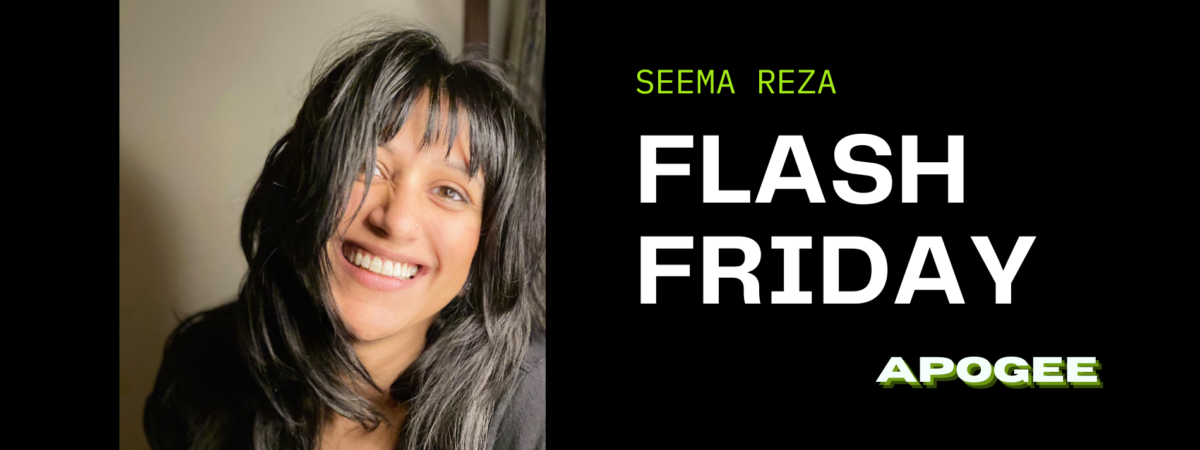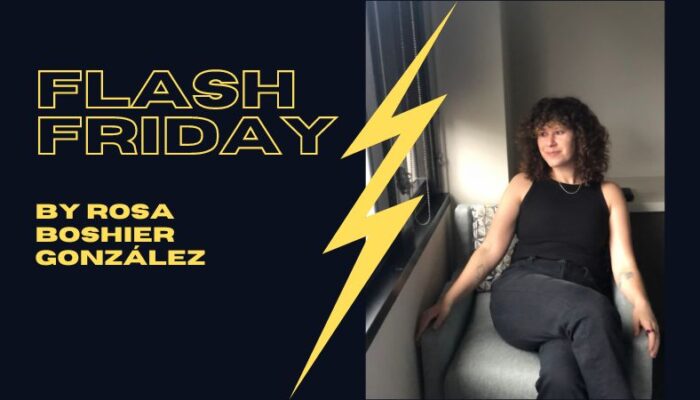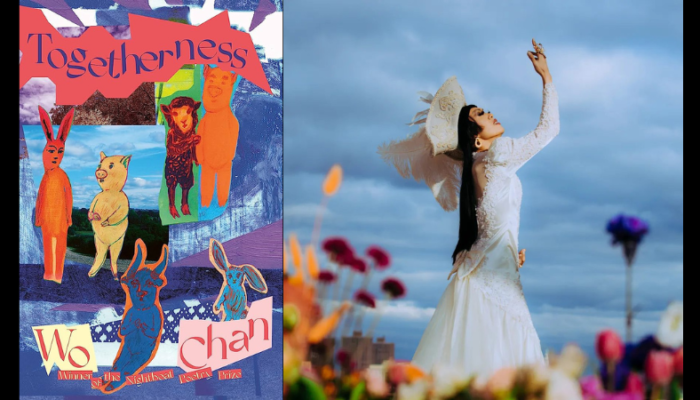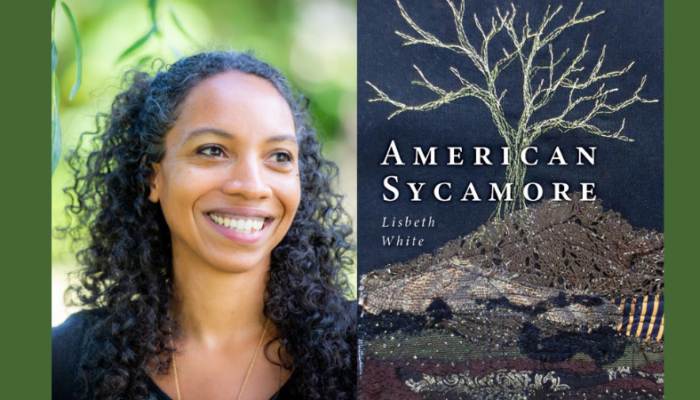I’m an American, a pampered simpleton. A tourist to the brownouts, the constant clatter, the bat hanging like a leaf in the well of the bathroom window, the white-eyed stare, the geckos winding haltingly along the painted concrete walls. I am accustomed to waiting in line and being served in the order I arrived. I expect the line to move along, and if it doesn’t, I expect the manager to open another lane. I present my insurance card, wait at red lights, and go at green. I drink my coffee with less sugar, no sugar, less milk, black. I expect tomatoes all year long, walk barefoot into the bathroom. Show me the data, I say. Show me the fine print. Prove it.
In Dhaka I sleep and wake in a loose cotton nightgown, hang a dupatta from my neck, its long ends concealing the outline of my body. My black hair curled by the dense tropical heat, my skin with a sheen it never has in Maryland. Outside, the hammering. Someone is always building something of concrete and steel rods, bamboo ladders angled from the baked earth up up up, the barefoot and bareheaded men calling to one another, voices echoing. The city is thick with bodies. Double-thick if you count the Qareen, the djinn-companions assigned to each person at birth. Quadruple if you count all the other djinn whose lives span thousands of years spent under trees, on the banks of the rivers that rise and fall, in the metaphysical planes all around us, gathering in the bathrooms, the places inside our homes where the angels never come.
In Maryland, I work on a military post in an office on the fifth floor of a building slated for demolition. I sign my emails “v/r” short for very respectfully. Some people use /r, shorten away even the very. For eight years, I have been trying to learn the language of this culture, where respect is shown by knowing your rank, not taking up too much time or space. I am a poet, a Muslim, an artist. I push a cart of art supplies and books through the interconnected, mismatched buildings. They are always building something here, too. For every Soldier here receiving “world-class care,” there are thousands being sent home across America, their demons traveling with them.
The smell of expensive perfume precedes the woman from HR in her pearls, and her boss (and mine), CEO of the contracting company in shiny black wingtip shoes. Sometimes, when she’s trying to build rapport, she is chatty, says “Girl!” in a friendly, conspiratorial way. But today she is quiet, sinking into an ergonomic office chair in the corner. The CEO sits in the other office chair, leaning back, his feet firmly planted on the tile floor. He tells me that 75 percent of the meeting he just had with leadership was about me. “They didn’t mention any other employee by name.” There are concerns, he tells me, that I am “undermining leadership and inciting mutiny.” He says, “We don’t want to have the MPs walk you out of here. But you evoke emotion.” He tells me it’s the way I look, the way I make eye contact, my hair, the way my voice sounds. He tells me, “This isn’t a witch hunt.” He tells me, “You need to learn to control it.”
My great-grandfather was a scholar who taught the Quran to djinn, never accepting payment, so as not to bind himself to them. I want to believe this. That my great-grandfather was a person so powerful, he believed what he saw. A person so certain of his faith and his strength, he did something scary because he had to. And I want to believe that one of these women-djinn is also in my bloodline, that in my clay body runs fire blood. What I know is: sometimes I feel it.
Each human is born with a Qareen, a fire double who lives and dies with us, confined by the aperture of our mortal lives. It is said the Prophet Muhammad’s Qareen was so inspired by his goodness, he converted to Islam. If you’re bad, your Qareen encourages you toward worse. It is a warning: there is always a hovering entity, waiting for you to trip so they can complete your fall. As a child, this idea made me feel less lonely. Free from the weight of my own decisions: to light a long match from the box and lay the flame on the tablecloth, to cut my sister’s hair while she slept, to steal a stapler from behind the receptionist’s desk. What were you thinking? I wasn’t. The invisible twin picked the fight, stole the car, drove fast toward the blinding sun.
Before I stopped believing, I never touched flowers by moonlight, stayed clear of trees at dusk. Audhu billahi mina shaytan ir rajeem, feeling along the walls toward the kitchen through the quiet house when I woke thirsty, audhu billahi mina shaytan ir rajeem if the darkness caught me by surprise and I was still pedaling uphill a block from home, audhu billahi mina shaytan ir rajeem as I crossed the threshold of the bathroom. Every time. Look left, look right, say salaam to the angels. Seek refuge, seek mercy. Stab the devil with my index finger. Sure of the spirits everywhere, even when I couldn’t see them, before the oppression of reason, before freedom from the invisible.
Button-down shirt, comfortable flats, jumping jacks in front of the mirror, mulch in the yard. Emptying the toaster of crumbs, sweeping the floor. The spray of lysol, refilling the bathroom soap, washing the rugs. Prompt response, check in the mail, highlighter poised. Green garbage can dragged to the edge of the road twice a week. Once I ignored an earthquake, so certain the shaking earth could only be explained as a train rumbling by, could only be explained by something human.
A confession: I never fully stopped believing. Audhu billahi mina shaytan ir rajeem always on the tip of my tongue, even when I wasn’t sure that god would still offer me refuge, even when I wasn’t sure he couldn’t. Because sometimes I am powerful enough to believe myself when I see the faint edge of a little bit more: My father’s voice in the dark as I’m falling asleep, dreams that explain what I don’t know. A stillness that comes over me when I am threatened, a blankness that feels nonhuman, a fearlessness that isn’t my own. There have been so many nights when I felt something I could not see, exhaling when I inhaled.




